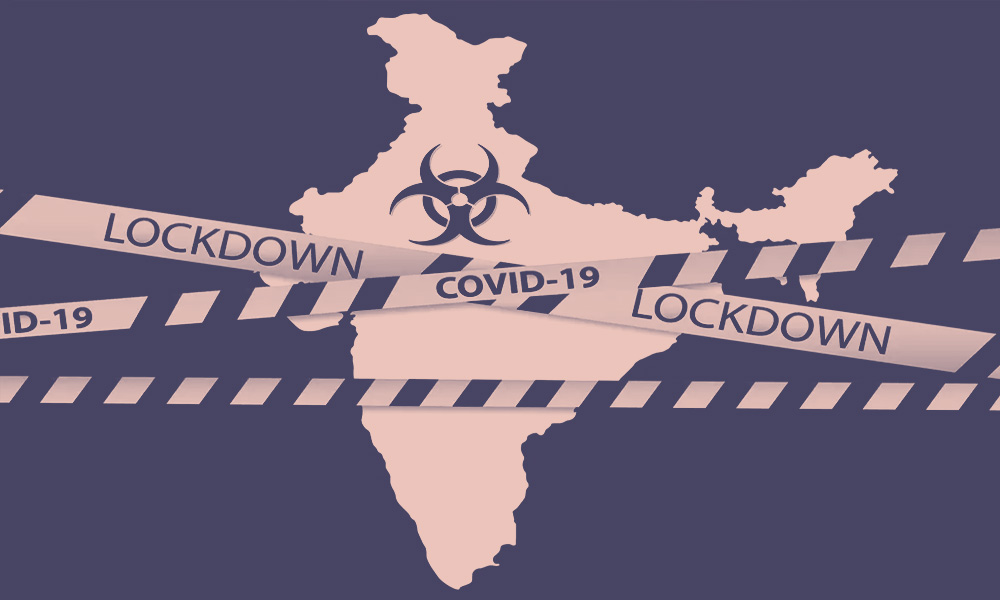
Image Credits: Jagranjosh
Lockdown: Here Is All You Need To Know
India, 25 March 2020 3:15 PM GMT
Editor : Prateek Gautam |
A free soul who believes that journalism, apart from politics, should stand for social cause and the environment.
By : Palak Agrawal
Palak a journalism graduate believes in simplifying the complicated and writing about the extraordinary lives of ordinary people. She calls herself a " hodophile" or in layman words- a person who loves to travel.
The Logical Indian attempts to answer all your questions on lockdown.
The number of confirmed cases in the country rose to 562 on Wednesday, March 25 with the Centre now resorting to legal action against the violators. According to the Economic Times, refusal to comply by the directions can invite punishment which includes a jail term of up to 1 year or a fine or both.
In an effort to break the chain of transmission, India's 1.3 billion people have been put under lockdown for three weeks starting Tuesday, March 24, midnight.
Several people are still confused about the services and facilities they can avail, and what others are prohibited during a lockdown.
The Logical Indian attempts to answer all your questions on lockdown.
What Is A Lockdown?
Lockdown is an emergency measure or condition in which people are temporarily prevented from entering or leaving a restricted area or building (such as a school) during a threat of danger, in this case, the transmission of a virus.
Essential services like grocery stores, pharmacies and banks are usually operational during this time.
Where Is The Lockdown Happening?
Prime Minister Narendra Modi declared a three-week nationwide lockdown starting Tuesday, March 24, midnight, explaining that it was the only way of breaking the Covid-19 transmission cycle.
Can't I Step Out Of Home At All?
Citizens are supposed to stay at home. There will be a complete bar on people from stepping outsides their homes.
Can I Go To Work?
Almost all cities in the country have directed private companies to let employees work from home. All offices will remain shut until the end of the lockdown period.
You can go to work if your work provides any of the following essential services:
- Defence, central armed police forces, treasury, public utilities (CNG, LPG, PNG), disaster management, power generations and transmission units, post offices, National Informatics Centre, Early Warning Agencies.
- Police, home guards, civil defence, fire and emergency services, disaster management, prisons, District Administration and Treasury, electricity, water, sanitation, municipal bodies in states and UTs.
- Hospitals, medical establishments, manufacturing and distribution of medical items, dispensaries, chemists, medical equipment shops, laboratories, clinics, nursing homes and ambulance.
- Shops dealing with ration, food, groceries, fruits and vegetables, dairy, meat, animal fodder.
- Banks, insurance offices, and ATMs.
- Delivery of essential goods through e-commerce, petrol pumps and gas stations.
- Capital and debt market services as notified by SEBI, cold storage and warehousing, and private security services.
- Print and electronic media, internet, cable and broadcasting, IT and IT-enabled services.
- Individuals engaged in manufacturing of essential commodities.
- Essential goods are allowed to be transported. Fire, law and order and emergency services.
- Hotels, lodges, motels, and homestays that are accommodating tourists stranded due to lockdown, medical and emergency staff, air and sea crew. Establishments earmarked for quarantine facilities.
What About Transportation?
No public transport service including taxis and auto-rickshaws are permitted. Private cars are also included in this.
Transportation for essential goods, fire, law and order situation and emergency services is permitted.
What Happens If I Break A Rule?
- Refusal to comply by directions can invite punishment which includes a jail term of up to 1 year or a fine or both.
- In case the non-compliance leads to loss of life or danger, it shall invite punishment of jail term of 2 years.
- Making false claims during the lockdown period for getting any benefits or relief shall invite a jail term of 2 years and fine.
- Hoarding of money or goods, especially by those mandated, will invite a jail term of 2 years and fine.
- Circulation of fake news or misinformation that creates panic will invite jail term of 1 year or fine..
- Officers who cease or refuse to perform, unless he has a lawful reason to do so, will face a jail term up to 1 year or fine.
What Is The Legal Ground Behind These Rules?
Section 2 of The Epidemic Diseases Act, 1897, gives the government the power to take special measures and prescribe regulations necessary to contain the spread of the disease.
Section 3 of the Act allows the government to impose a penalty on the person flouting any rule made under the Act.
Who Is Incharge?
All district magistrates, police commissioners. Municipal commissioners, SPs, ADMs, CMOHs, SDOs, BDOs are authorized to take necessary measures for implementing the rules of lockdown.
Also Read: What Worst-Affected Indian States Are Doing To Fight Coronavirus Pandemic
 All section
All section














